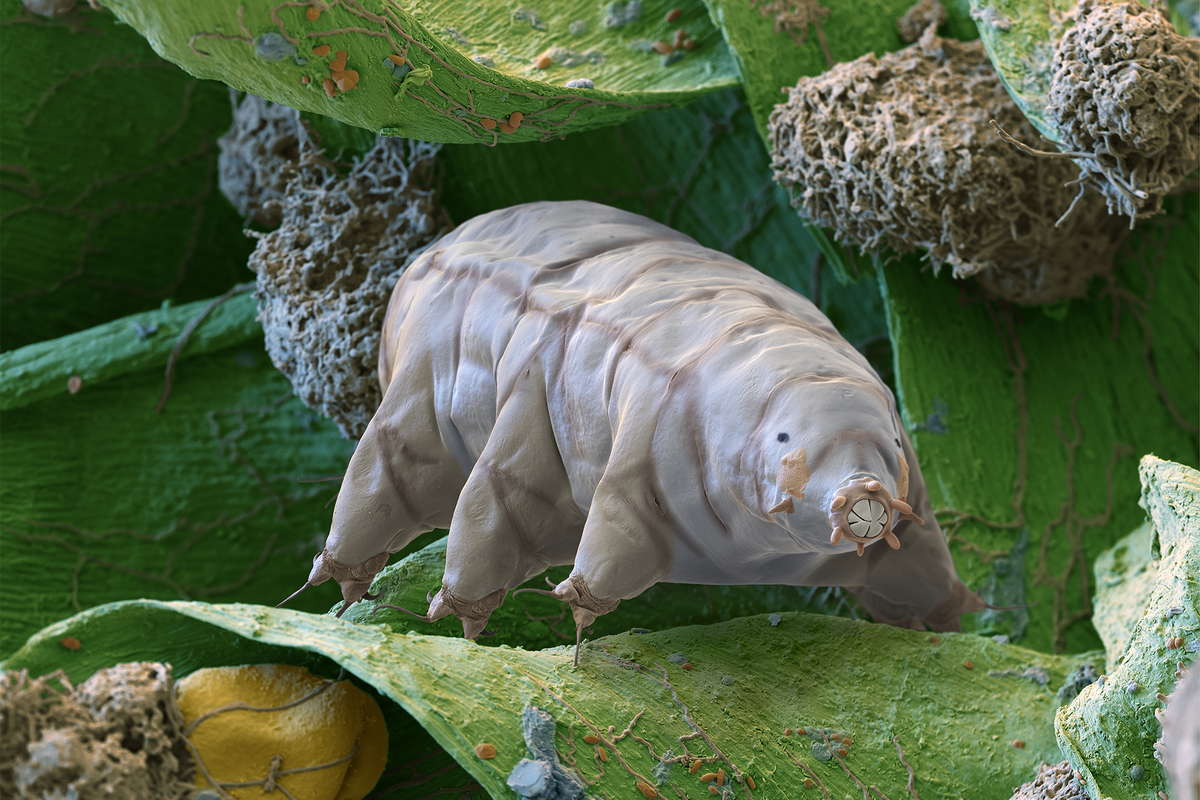Tardigrades are microscopic animals that can survive a host of conditions that are too extreme to ever occur on Earth—and scientists want to learn their secrets
Tiny tardigrades have three claims to fame: their charmingly pudgy appearance, delightful common names (water bear and moss piglet) and stunning resilience in the face of threats ranging from the vacuum of space to temperatures near absolute zero.
Now scientists have identified a key mechanism contributing to tardigrades’ resilience—a molecular switch of sorts that triggers a hardy dormant state of being. The researchers hope that the new work, published on January 17 in the journal PLOS ONE, will encourage further exploration of the microscopic creatures’ ability to withstand extreme conditions.
“It’s opened up a whole huge repertoire of experiments we can now pursue,” says Leslie Hicks, a chemist at the University of North Carolina at Chapel Hill and a co-author of the study.



What is the tun state of a tardigrade?
Damn, that’s really cool.
Also another fun fact: not all tardigrades are capable of going into the tun state. For example, aquatic tardigrades that live in freshwater streams can form what is called a summer egg, which allows them to survive hot and potentially dry conditions, but I don’t believe much has been studied on this alternative state. IIRC marine tardigrades also cannot achieve the tun state, so this really only applies to terrestrial* tardigrades.
*Terrestrial tardigrades are also sometimes referred to as aquatic tardigrades as they are only active (not in the tun state) in the presence of water (e.g., after it rains)
User name checks out
TIL tardigrades are awesome.
Am I the only one who’s reminded of The Three Body Problem?
Mild spoiler alert:
DEHYDRATE!!!
My exact thought
That would be .2 KCal for us a day! That’s wild
I really appreciate the way you asked and answered your own question
standby mode, effectively